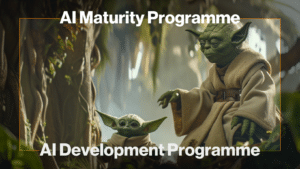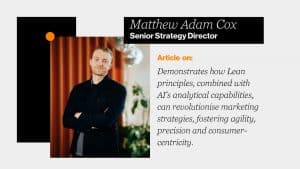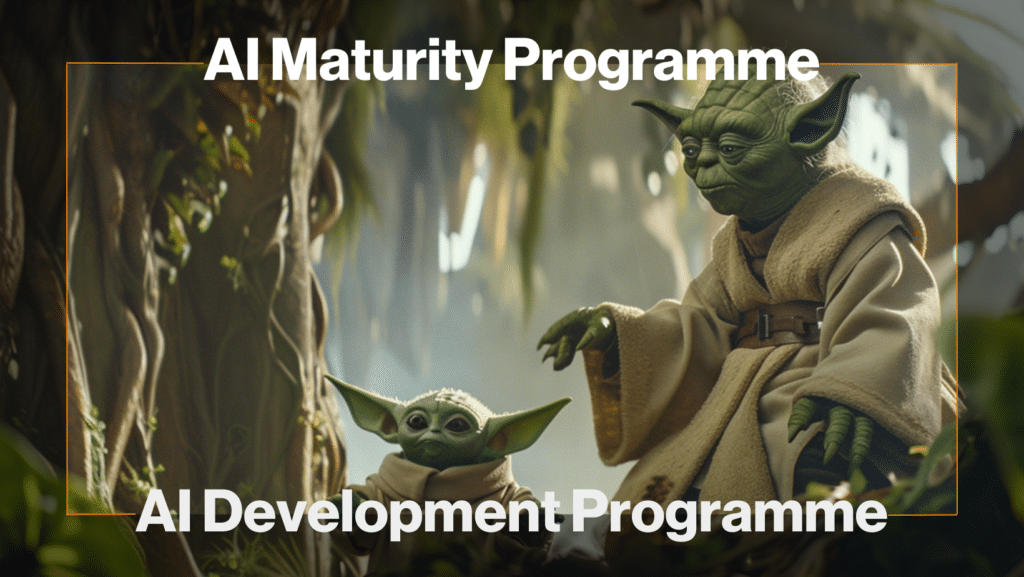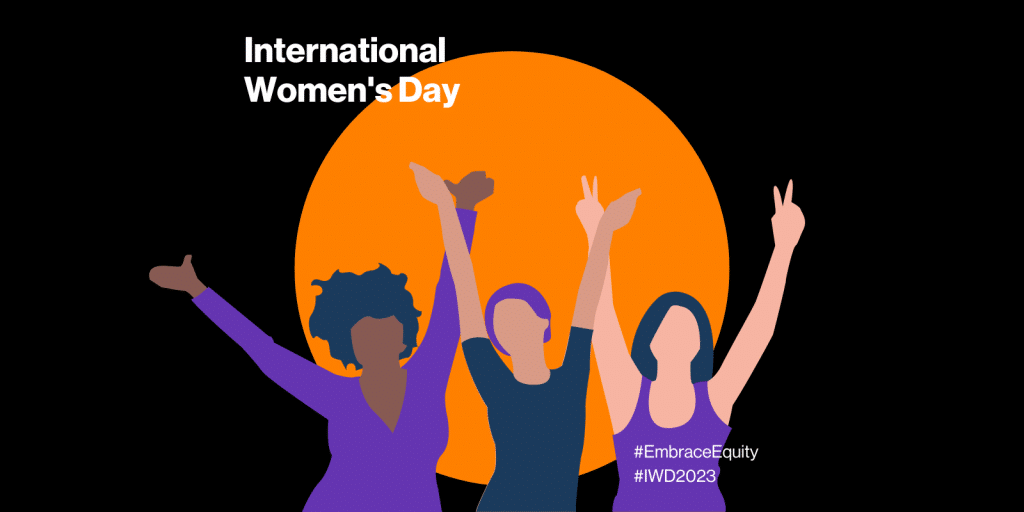Navigating the evolution for competitive advantage
Source: WARC
Natalja Piiskoppel, Senior Strategy Partner at Wavemaker’s Consultancy, shares insights on the imperative role shift for strategists into broader brand and marketing consulting, offering an advantage in today’s dynamic market.
As strategists we know change. Over the years, through the digital transformation and particularly in the wake of global market turbulence heightened by the pandemic, the traditional comms planner’s or strategist’s role has transformed into a dynamic and multifaceted position. Clients come to us with diverse challenges, from preserving brand equity in challenging economic scenarios to balancing ESG initiatives with price sensitivity. With global economic, political and security uncertainties married with data privacy concerns and AI disruption, client pressures continue unabated.
However, disruption and uncertainly also unveil unprecedented new opportunities. Using Wavemaker’s Unlock tool, audits reveal an average of 24% untapped growth potential across various client business areas, like e-commerce, data, operating model, applied innovation. As strategists, we help steer this growth journey. Yet, in this evolving landscape, where roles are in constant flux, are we adapting and pushing ourselves enough to help our clients navigate the pathway to growth?
Addressing contemporary clients’ challenges that once belonged to the domain of business and marketing consulting is now crucial, and confidently embracing the new mindset of a consultant becomes increasingly imperative. Transitioning to consulting allows strategists to stand out by guiding clients towards growth, and enhancing their value in the process.
In this transition, however, strategists frequently encounter formidable obstacles, including time constraints and incentives to develop new capabilities and skills, self-doubt and lack of confidence to get ahead of clients’ desire for change, all while grappling with limited backing from senior leadership.
While we can’t address every obstacle in this article, the evolution from a strategist to a growth consultant begins with a strategic shift in mindset, asking new questions, and embracing new collaborative approaches:
Shift One: From covering media and communication issues to addressing broad business, marketing and brand challenges.
Old question: “Where are we missing Media and Advertising ROI?”
New question: “Where are we missing New Sources of Growth?”
Consultants, be it marketing or business, excel at identifying growth opportunities, market gaps, and areas for improvement and rely heavily on data and analytics to inform their recommendations.
By employing strategic acumen to look at challenges more holistically and integrating diverse data sources easily available at agencies, strategists are well equipped to advise clients on transformative practices and future marketing levers for growth, helping them to protect outcomes in the near-term, and create disproportionate advantage in the long-run.
As a compelling illustration of consultancy capabilities, we guided a client’s transition from a B2B focus to a B2C model, catapulting them into a position of global leadership in consumer-centric communication. This strategic shift not only substantially broadened their audience but also unlocked unprecedented growth potential.
Shift Two: From reacting to changes in media and tech landscape to responding to complex markets and unforeseen circumstances.
Old question: “How do we maximize the impact of this communication plan?”
New question: “How do we create a better model for the brand and the economy in which it grows?”
Consultants are equipped with the skills and methodologies to navigate uncertainty, identify emerging trends, and pivot strategies accordingly.
To stay ahead in the ever-changing economic and political environment, strategists must look beyond communication landscape as well as dive deep into client’s inner workings, including its operations, culture, and systems, to be able to formulate more intelligent and impactful responses.
This mindset powered a surge in e-commerce growth across our CPD client’s entire brand portfolio during the pandemic-driven digital commerce shift, all while previously facing the absence of both a direct-to-consumer channel and significant regional e-commerce players.
Shift Three: From working autonomously to collaborating in cross-disciplinary unified teams.
Old question: “How can I solve this challenge and provide direction to others?”
New question: “How can we solve this challenge collaboratively?”
Consultants often possess multidisciplinary knowledge, making them well-equipped to work in cross-disciplinary teams. They bring expertise in finance, operations, marketing, and technology, allowing them to comprehensively address complex issues.
Strategists don’t require exhaustive expertise in various specialist disciplines. However, today, more than ever, our role needs to centre on nurturing collaboration among diverse agency units, orchestrating a synchronized approach to tackle client questions, and guaranteeing a cohesive, integrated, and impactful solution – an essential catalyst for growth.
Shift Four: From spearheading innovation to ensuring sustainable change.
Old question: “What if we could drive more media and tech innovation?”
New question: “What if we could future-proof our clients’ marketing strategies?”
Consultants are adept at change management, a crucial aspect of strategy execution. They excel in managing organisational shifts, ensuring that strategies are seamlessly integrated into the company’s operations.
Effective change management plays a fundamental role in achieving a smooth transition into the field of consultancy. In this scenario, agency strategists are uniquely positioned to not only provide guidance but also actively collaborate with clients in the process, embarking on the transformation journey together and making themselves accountable for the final outcome.
A prime illustration would be a transformative capability-building and change management process that helped one of our clients reshape a large catalogue production studio into a dynamic communication ecosystem planning unit, finely tuned for the evolving landscape.
The ever changing business environment demands a transformation of strategists into growth consultants. This transformation does not imply becoming a jack of all trades, as certain areas of expertise will still reside within specialised consultancies or specific business domains. Nevertheless, we are already advancing swiftly towards addressing challenges that extend beyond mere communication. This shift in mindset empowers strategists to provide comprehensive, data-driven, and flexible solutions, ultimately strengthening client relationships and ensuring the enduring relevance of their agencies’ offering.










